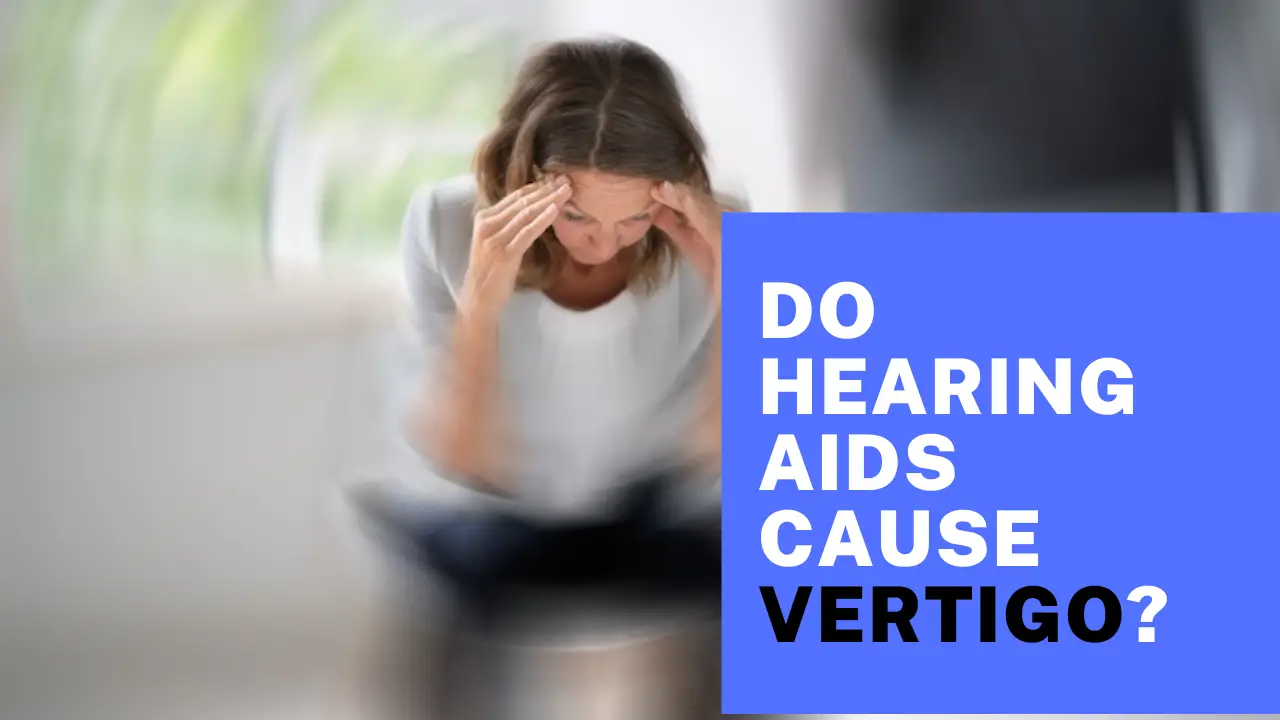Do hearing aids cause vertigo? Investigate the possible relationship between hearing aids and vertigo symptoms. Discover typical triggers, types of hearing aids, and treatment options. Gain insight into study findings and practical techniques for reducing pain. Understand how important it is to seek professional guidance and make modifications for a great hearing aid experience. Find answers to common questions concerning increasing vertigo, different types of hearing aids, the persistence of symptoms, and other solutions. Get answers and information on how to properly manage vertigo symptoms.
Introduction to Hearing Aids and Vertigo
For many years, people with hearing loss have praised hearing aids as ground-breaking tools that improve their quality of life by raising auditory perception. But worries have surfaced about its possible link to vertigo, a debilitating illness marked by a spinning or lightheaded feeling. In this piece, we examine the connection between vertigo and hearing aids and investigate if these gadgets can induce or worsen vertigo symptoms.
Understanding Vertigo
What is Vertigo?
Vertigo is a particular kind of vertigo in which a person feels as though they or their surroundings are spinning or moving when they are not. It is not just a case of feeling lightheaded. It is frequently linked to issues with the brain or inner ear.
Causes of Vertigo
Many conditions can cause vertigo, such as vestibular neuritis, Meniere’s disease, benign paroxysmal positional vertigo (BPPV), and even some drugs that interfere with inner ear function.
Connection Between Hearing Aids and Vertigo (Do Hearing Aids Cause Vertigo)
Types of Hearing Aids
Hearing aids are available in three types: behind-the-ear (BTE), in-the-ear (ITE), and completely-in-the-canal (CIC). Each kind functions differently and may have various effects on people.
Potential Triggers for Vertigo
While hearing aids may not directly induce vertigo, some users report feeling vertigo-like symptoms soon after using them. These symptoms may occur as a result of changes in auditory perception, spatial orientation alterations, or even the device’s fit within the ear.
Research and Studies
Studies on Hearing Aids and Vertigo
The investigation on the relationship between hearing aids and vertigo is ongoing. Some studies show that some types of hearing aids, particularly those that obstruct the ear canal, may mistakenly alter the inner ear’s balancing process, thereby causing vertigo in susceptible individuals.
Common Symptoms
Symptoms of Vertigo
Common vertigo symptoms include a spinning or whirling feeling, unbalance, nausea, vomiting, and perspiration. These symptoms can have a substantial influence on an individual’s everyday life and general well-being.
Symptoms Related to Hearing Aids
Individuals wearing hearing aids may suffer symptoms such as dizziness, lightheadedness, or a sense of being off balance, particularly during the first adjustment phase or after switching to a new hearing aid.
Prevention and Management
Tips for Avoiding Vertigo with Hearing Aids
To reduce the risk of vertigo associated with hearing aids, it is critical to have a skilled audiologist fit and adjust them properly. Furthermore, progressively acclimating to the usage of hearing aids and taking pauses as needed might help reduce pain.
Managing Vertigo Symptoms
Individuals with vertigo symptoms might benefit from a variety of therapy measures, including vestibular rehabilitation exercises, medicines, dietary modifications, and stress management approaches.
Consulting a Professional
Importance of Seeking Medical Advice
If you have chronic or severe vertigo symptoms while using hearing aids, you should speak with a healthcare expert or an audiologist. They can evaluate your condition, do any required tests, and make suitable suggestions.
Hearing Aid Adjustments
In certain circumstances, changing the settings or kind of hearing aid will help ease vertigo symptoms. A skilled audiologist may make these modifications depending on your specific requirements and preferences.
Conclusion
While hearing aids do not cause vertigo, some people may experience vertigo-like symptoms while wearing them. Understanding possible triggers and obtaining expert advice can assist in reducing pain and guarantee a happy hearing aid experience.
FAQs
- Can wearing hearing aids worsen existing vertigo?
- While rare, some individuals may experience increased vertigo symptoms initially when using hearing aids. However, proper fitting and adjustment can often alleviate these symptoms over time.
- Are certain types of hearing aids more likely to cause vertigo?
- Some studies suggest that hearing aids that block the ear canal may pose a higher risk of triggering vertigo-like symptoms. However, individual experiences may vary.
- Can vertigo caused by hearing aids be permanent?
- In most cases, vertigo symptoms associated with hearing aids are temporary and subside with proper adjustment and acclimatization. Persistent symptoms should be evaluated by a healthcare professional.
- What should I do if I experience vertigo while wearing hearing aids?
- If you experience vertigo symptoms while using hearing aids, it’s essential to consult with an audiologist or healthcare provider. They can assess your condition and recommend appropriate steps.
- Are there alternative options for individuals experiencing vertigo with hearing aids?
- In some cases, alternative hearing aid designs or assistive listening devices may be suitable for individuals prone to vertigo symptoms. Consulting with a qualified audiologist can help explore these options.
Read More:
Hearing Aid Comparison: Oticon vs. Starkey – Which Is Right for You?
Hearing Aids for Dogs: Enhancing Canine Communication and Safety
Signia vs Rexton: A Comprehensive Comparison of Hearing Aids


1 thought on “Do Hearing Aids Cause Vertigo?”